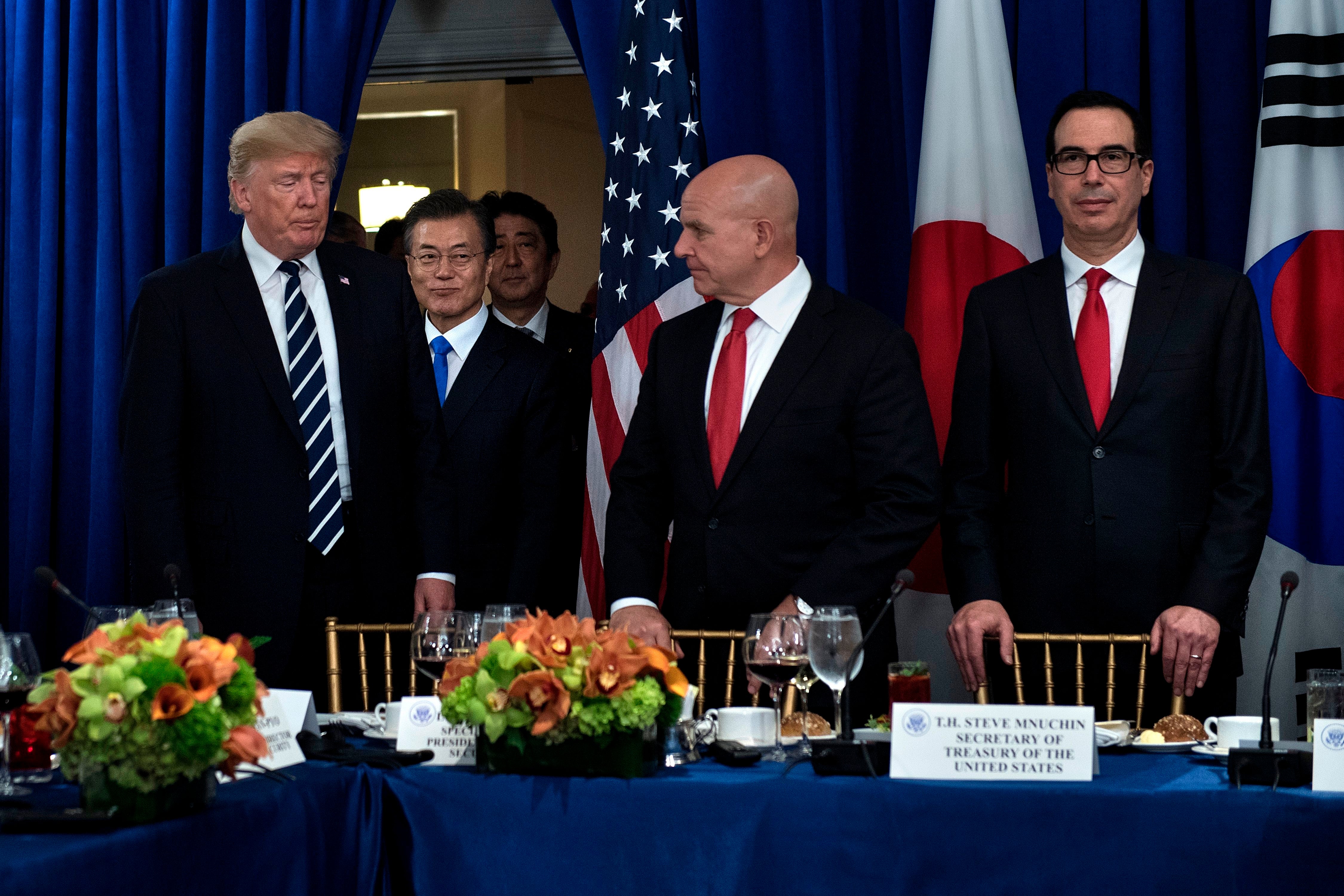World
Trump was treated like a ‘chump’ by foreign dictators, former top aide says

Former Trump National Security Adviser HR McMaster has written in a new book that the then-president was treated like a “chump” by a string of authoritarian leaders.
McMaster, a lieutenant general, writes about an almost two-week-long trip to Asia in his memoir At War With Ourselves, saying that China was the “most consequential” destination.
On their way to Beijing, McMaster cautioned Donald Trump that Chinese President Xi Jinping would attempt to trick the then-president into saying something that was positive for China but would in effect be bad for the US and its allies.
“The CCP’s favorite phrase, ‘win-win,’ actually meant that China won twice,” McMaster wrote that he told Trump. While Trump appeared to listen at the time, he later said he agreed with Xi that military exercises in South Korea were “provocative” and a “waste of money.” He also suggested that China could have a claim to the Senkaku Islands, which belong to Japan, a US ally.
As his stomach sank, McMaster wrote in a note to then-Chief of Staff John Kelly, a general, that Xi “ate our lunch,” according to The New York Times.
The national security adviser writes in the memoir that Trump was often treated like a “chump” by authoritarian leaders.

To get on Trump’s good side, some flattery and a bit of pomp and circumstance appeared to be all that was needed from leaders such as Xi, Vladimir Putin of Russia, and Recep Tayyip Erdogan of Turkey.
McMaster notes that in 2018, he found Trump writing a note to Putin on top of a New York Post article in which he said he was disappointed at how the US political system was “eating itself up” but in which he praised Trump, calling him a great communicator.
“I have no disappointment at all. Moreover, on a personal level, he made a very good impression on me,” Putin said, according to the Post.
Trump asked McMaster to send the note to the Kremlin just as evidence was coming out that Putin appeared to have ordered an assassination in the UK.
The adviser didn’t send the note, telling an irate Trump that it would “reinforce the narrative that you are somehow in the Kremlin’s pocket.”
In an interview with Phil McGraw, known as Dr Phil, broadcast on Tuesday evening, Trump discussed how President Joe Biden stepped down and endorsed Vice President Kamala Harris.
“They give you a nice, fresh opponent and so I have to win that, and if I win that, that would really serve to say that there’s some incredible power up there that wanted me to be involved in saving, and maybe it’s more than saving the nation,” he said as they spoke about the assassination attempt against him last month. “Maybe it’s saving the world. You know, I get along with all those tough guys.”
McMaster writes that Trump staffers threw “accusations of disloyalty” at each other as they tried to influence the then-president. The national security adviser writes that a “vortex of vitriol” often undercut what the administration was trying to achieve and that Trump’s “indiscipline made him the antagonist in his own story.”
When the subject of Mexico comes up during a discussion, McMaster writes that Trump asked, “Why don’t we just bomb the drugs?”
The lieutenant general also notes that the failed 2021 US withdrawal from Afghanistan can be linked to the “atmosphere of inconsistency” during the Trump administration.
McMaster questions if Trump, 78, can “perform well the sometimes grueling job of president,” adding that the 13-day trip to Asia left him “tired” – seven years ago.
“Trump’s anxieties and insecurities rendered him vulnerable,” McMaster writes.










